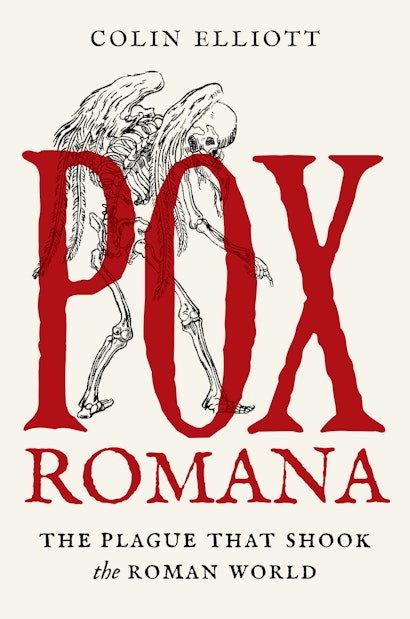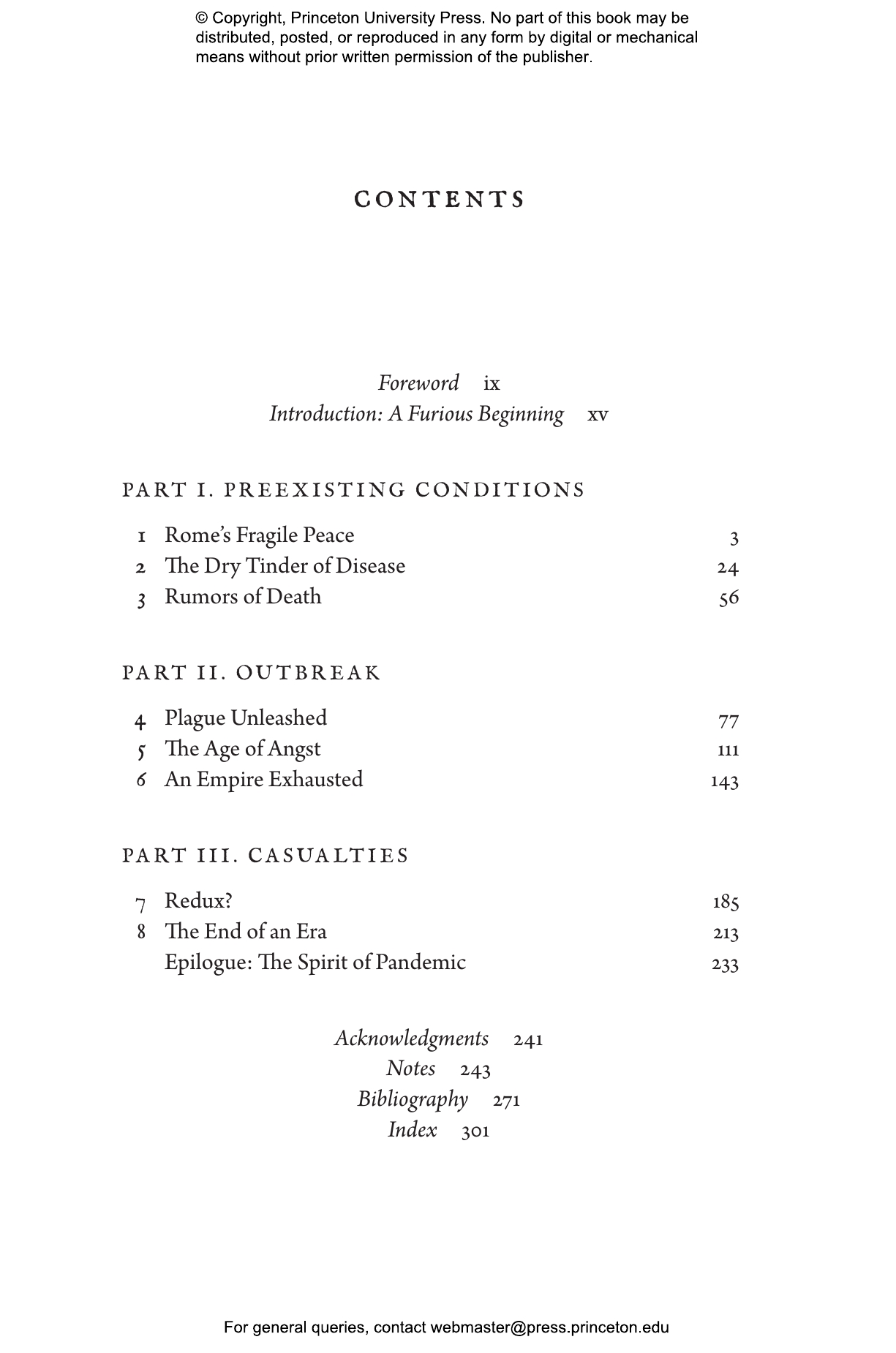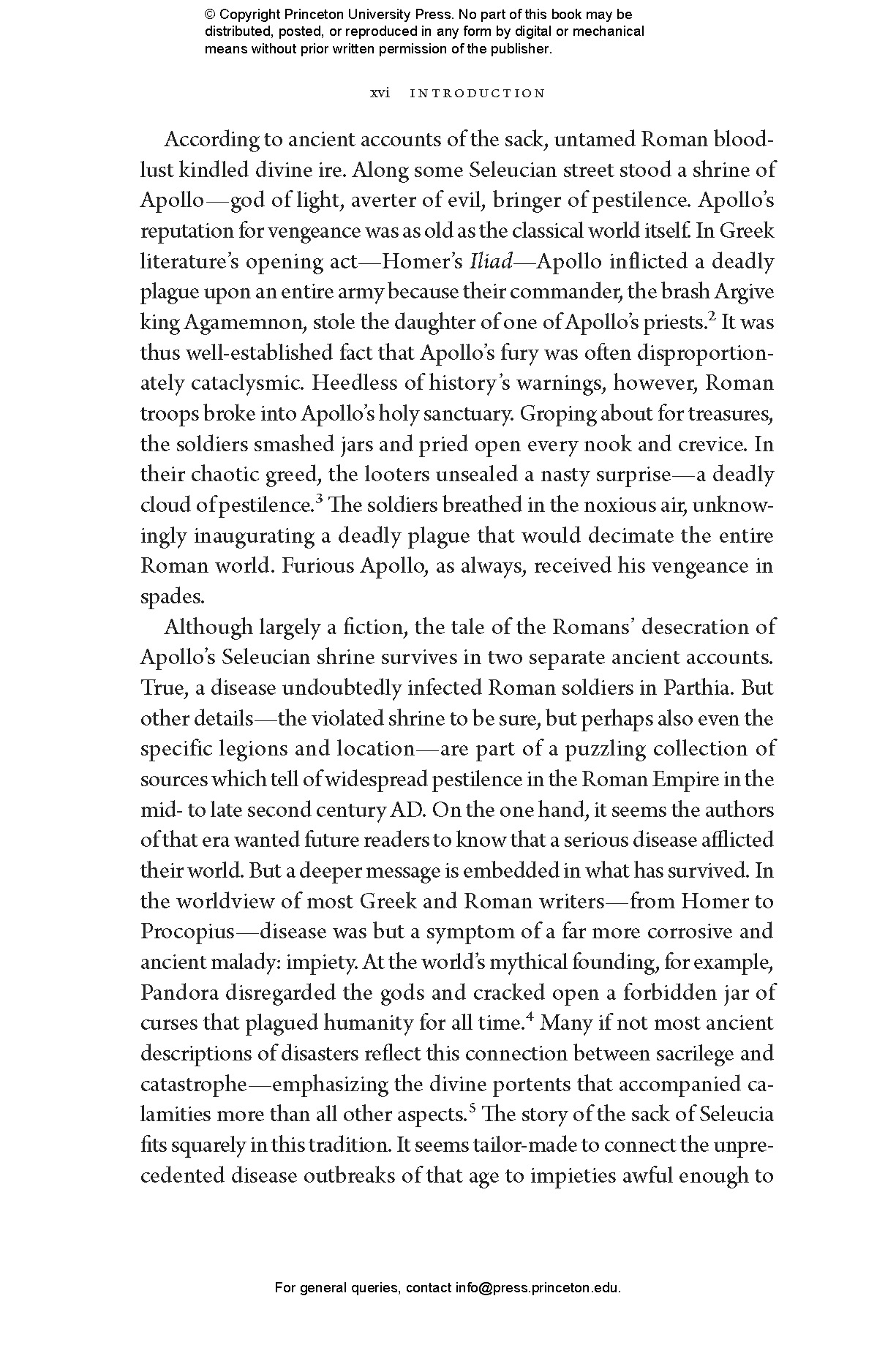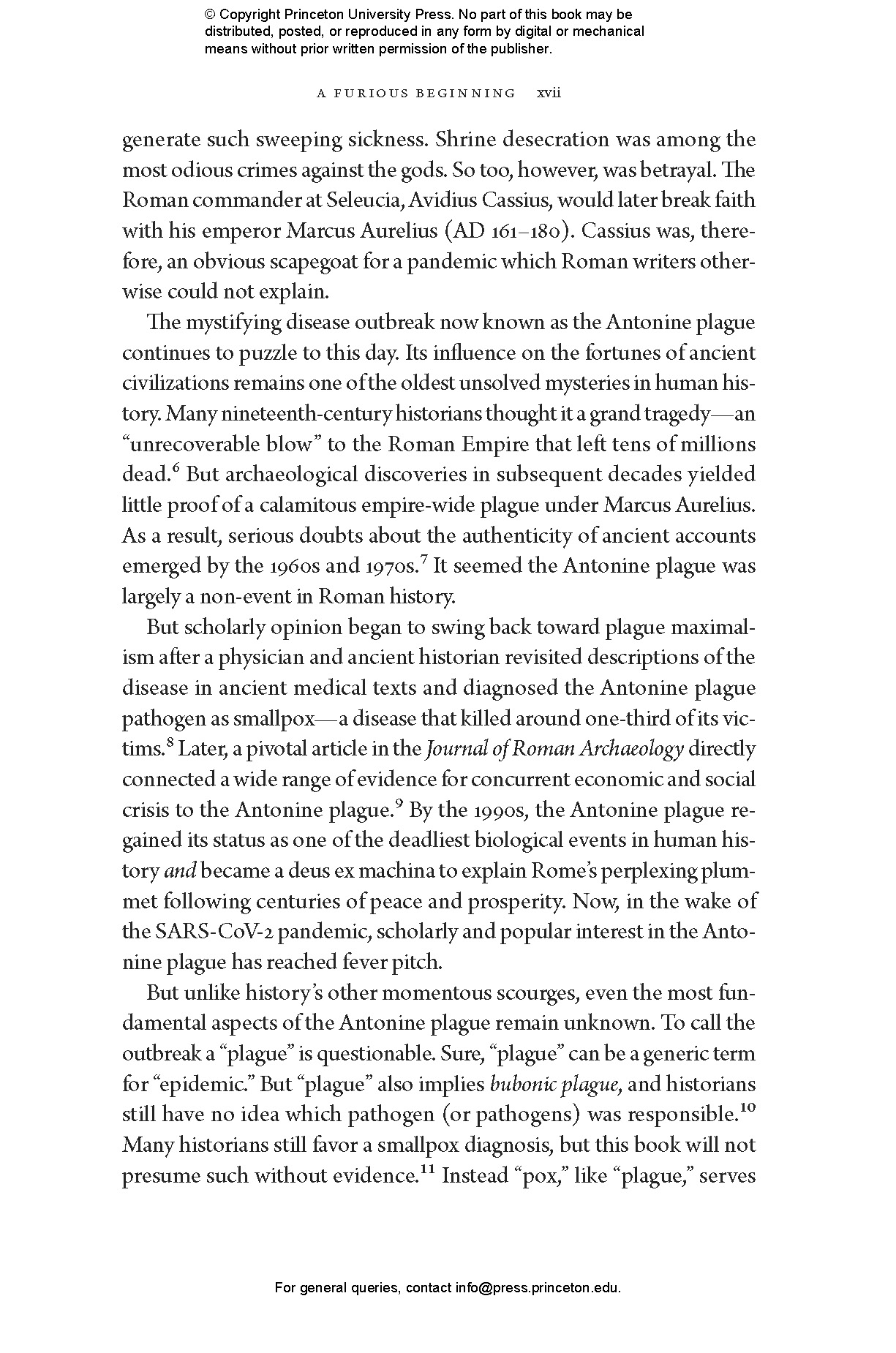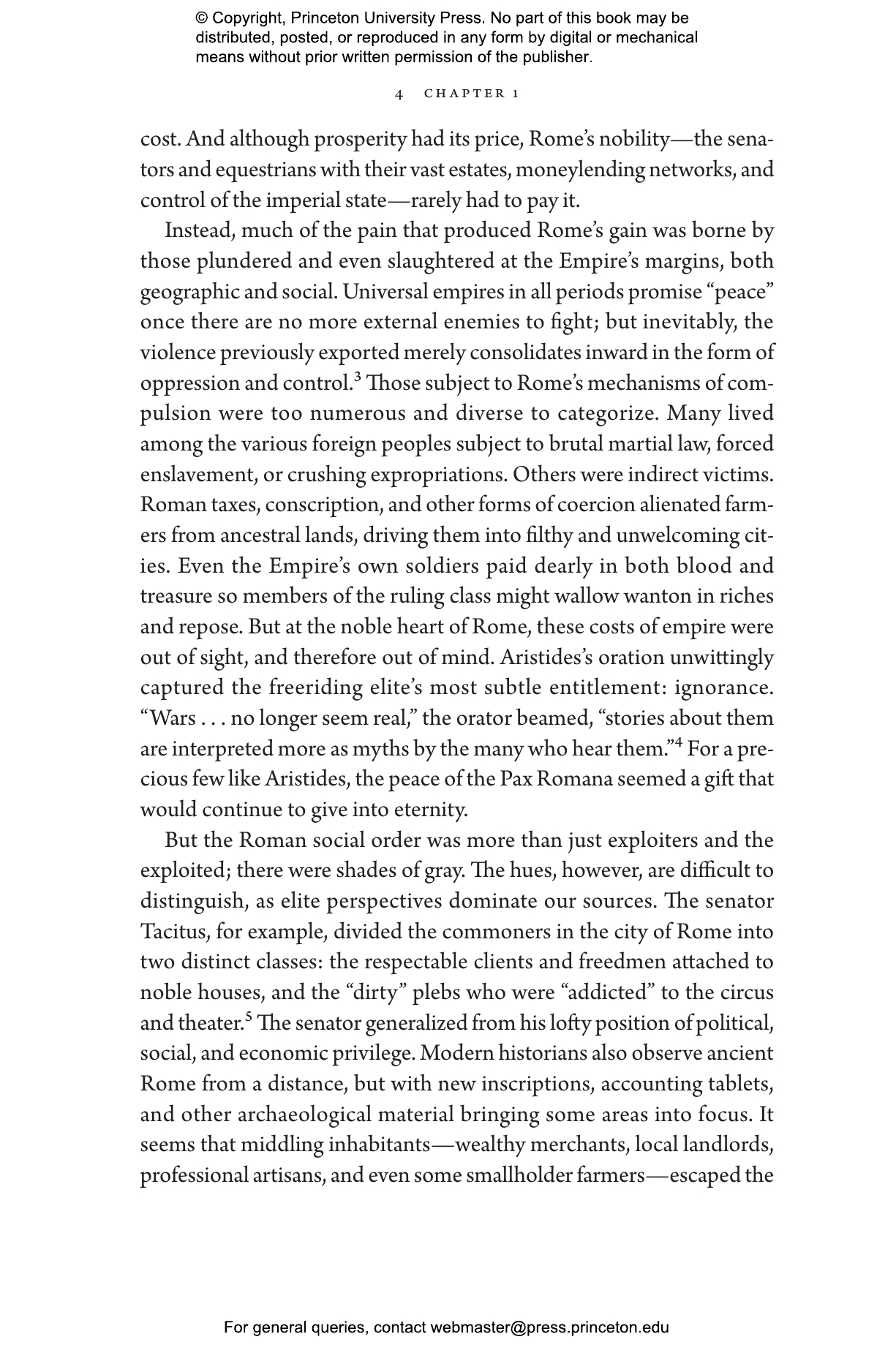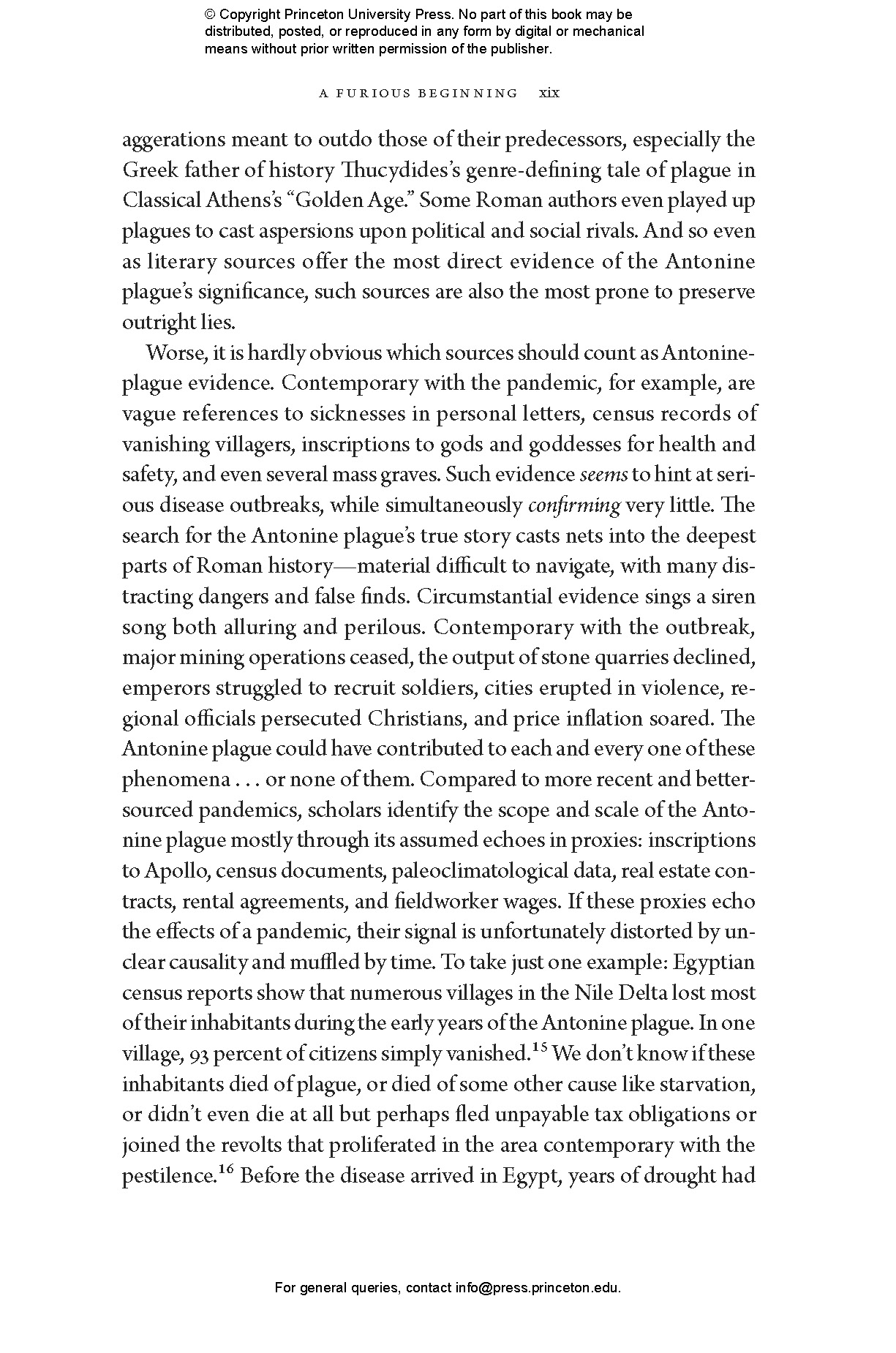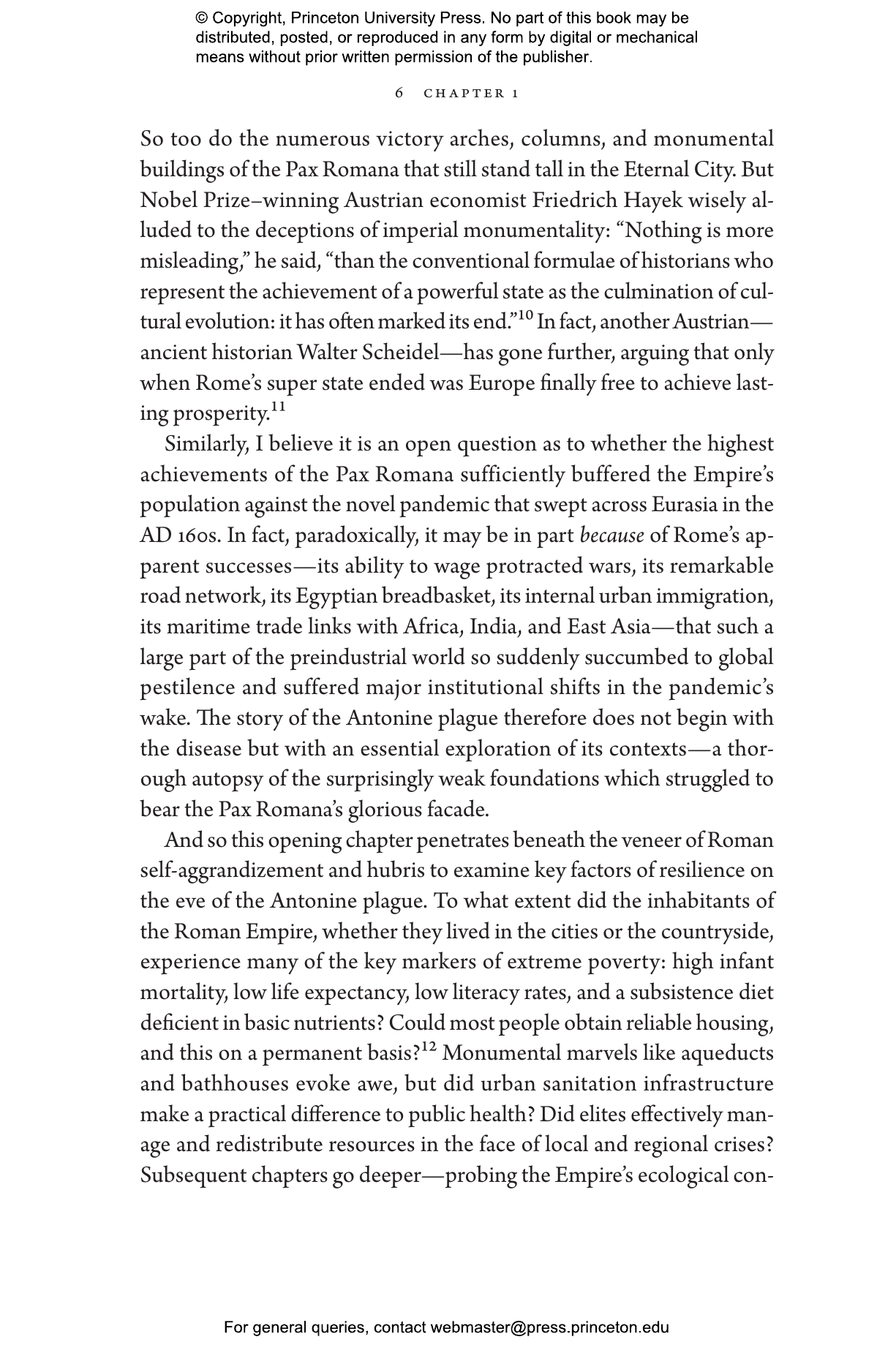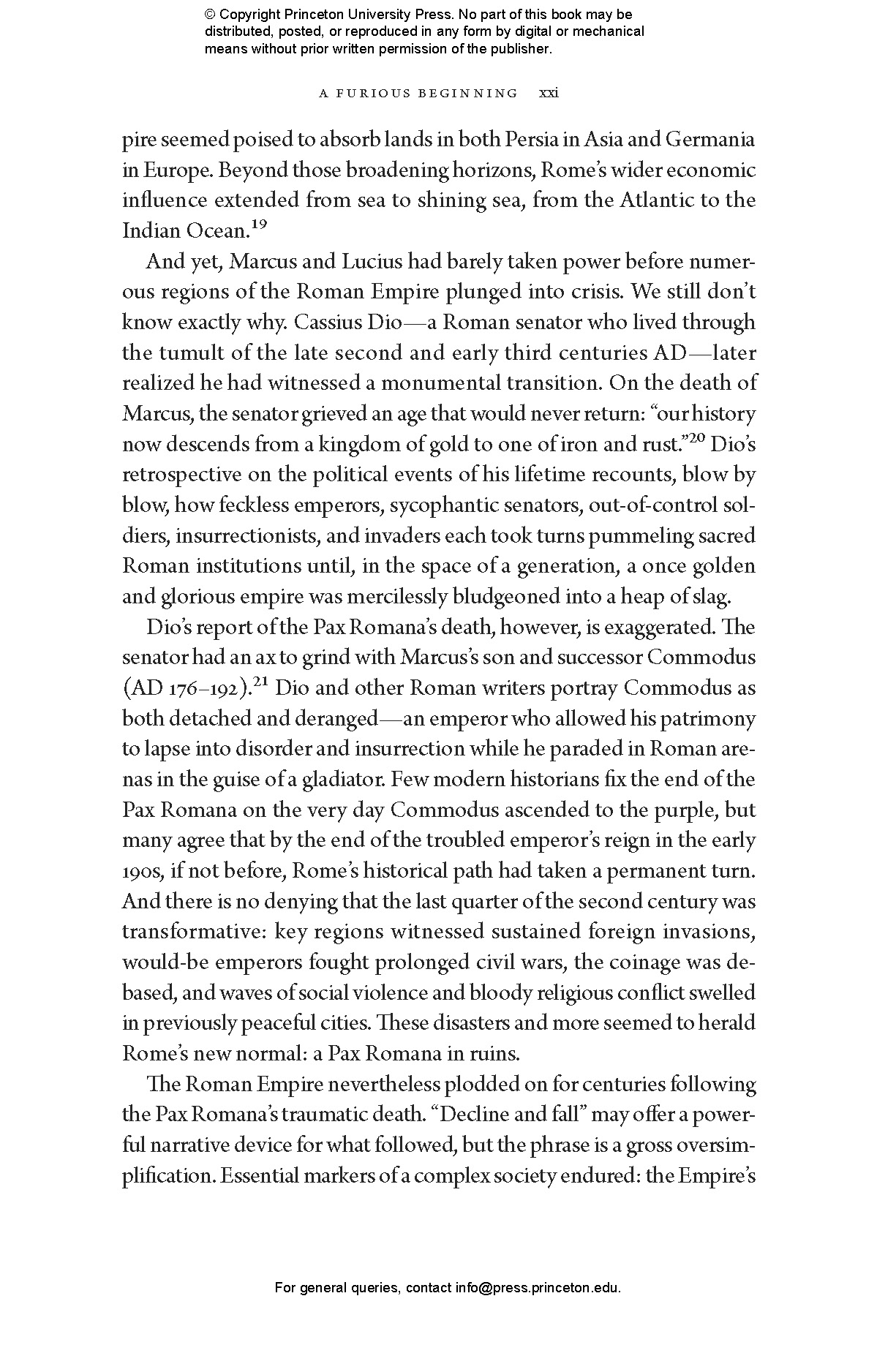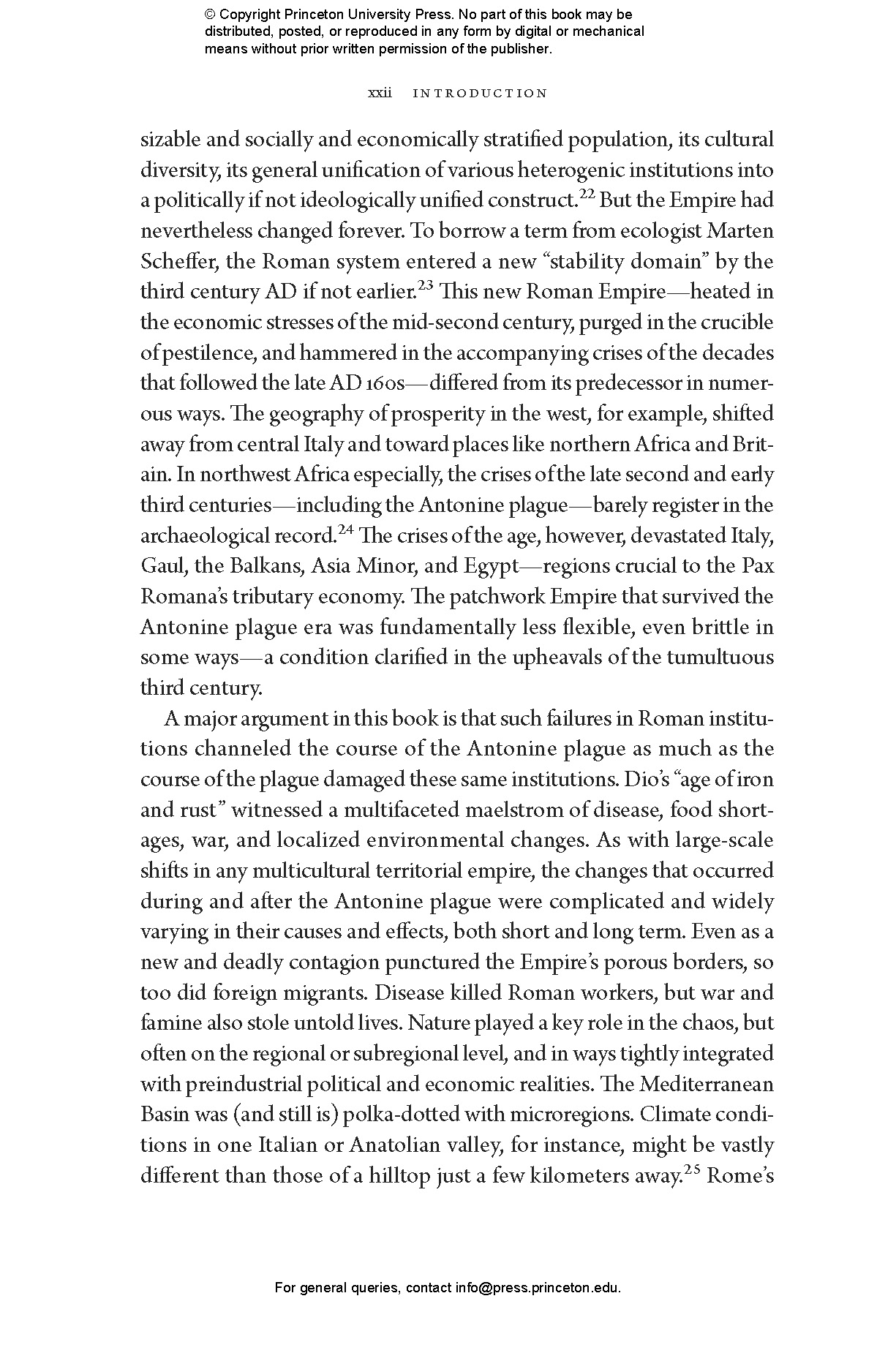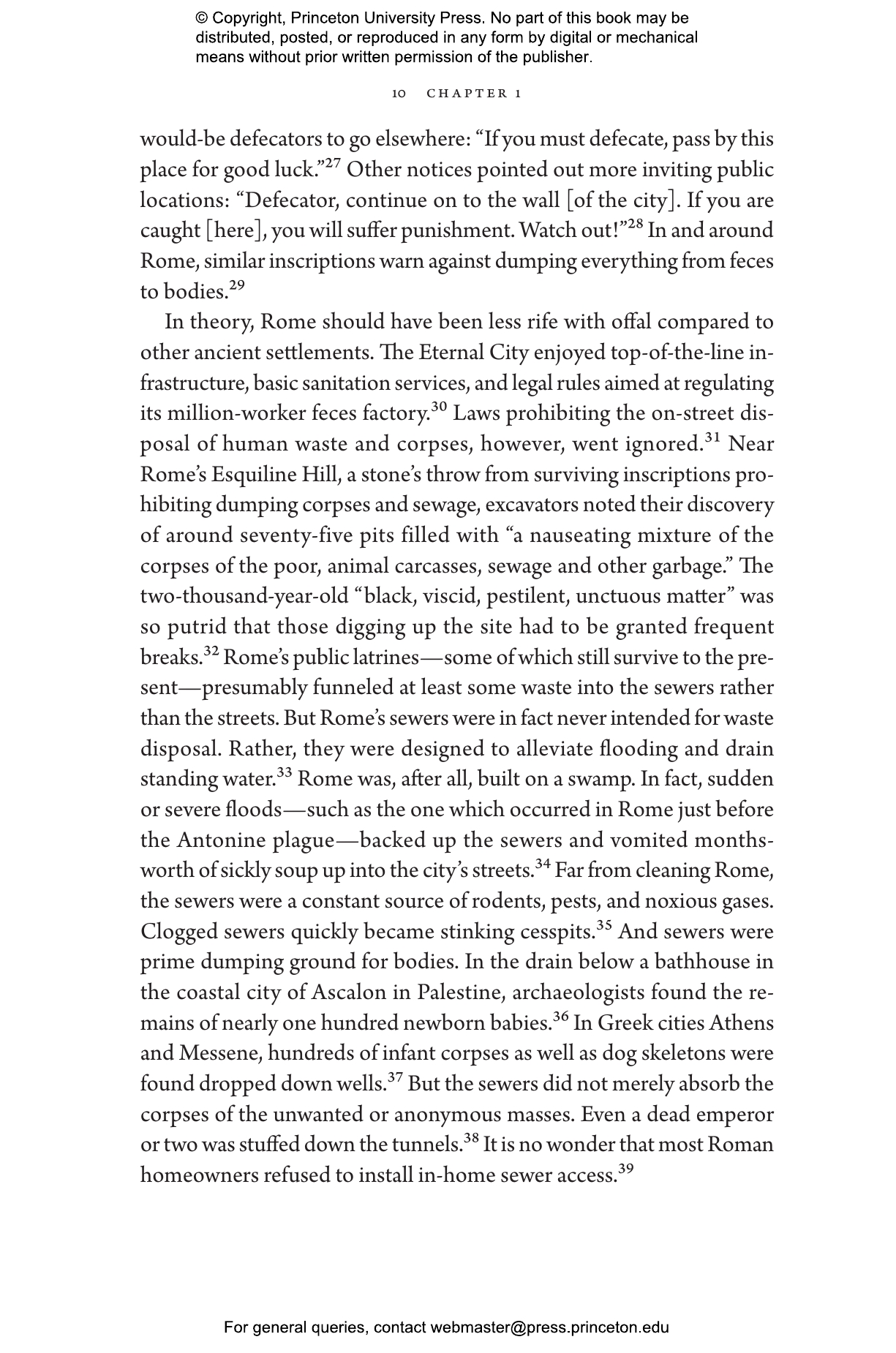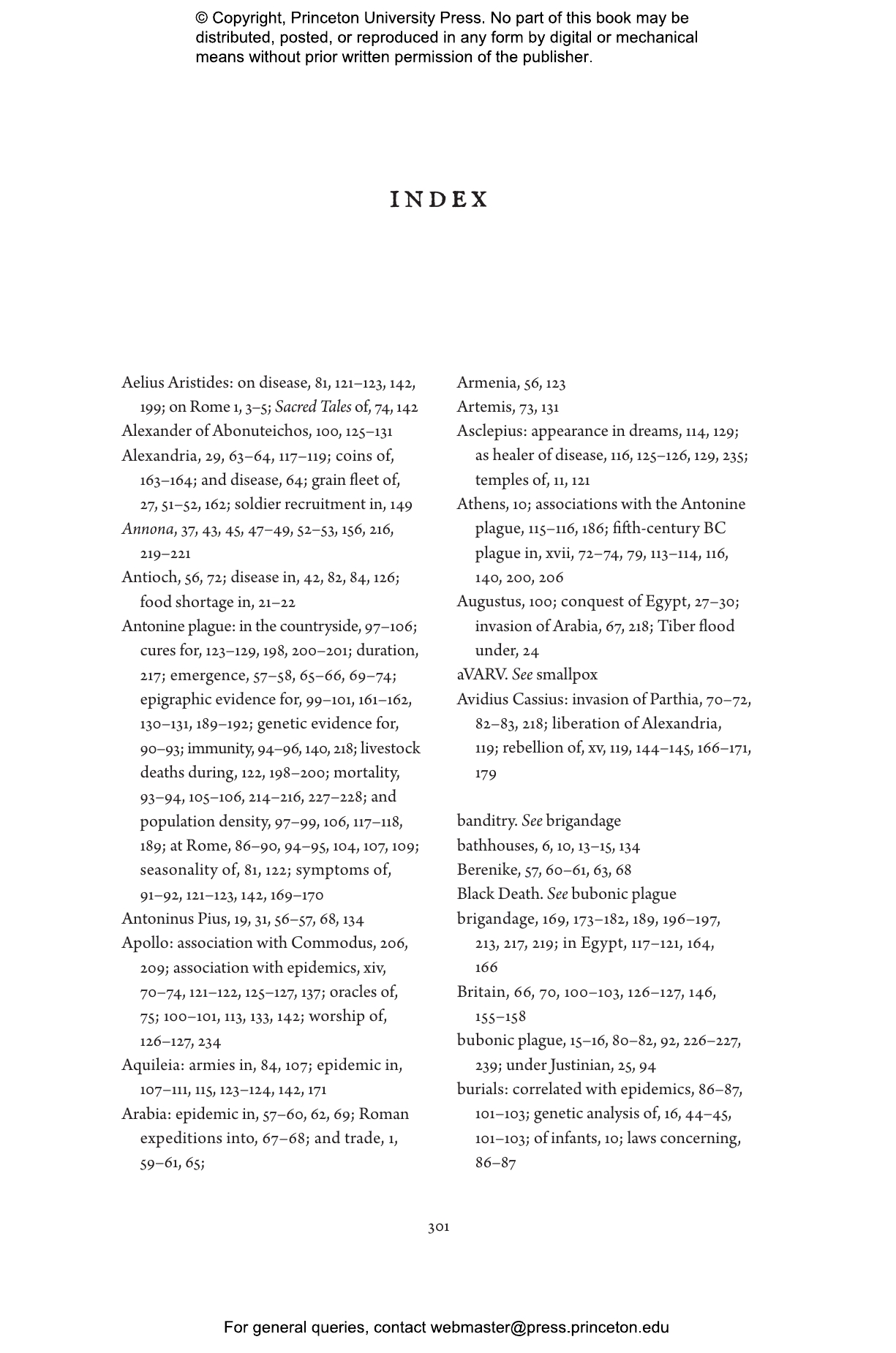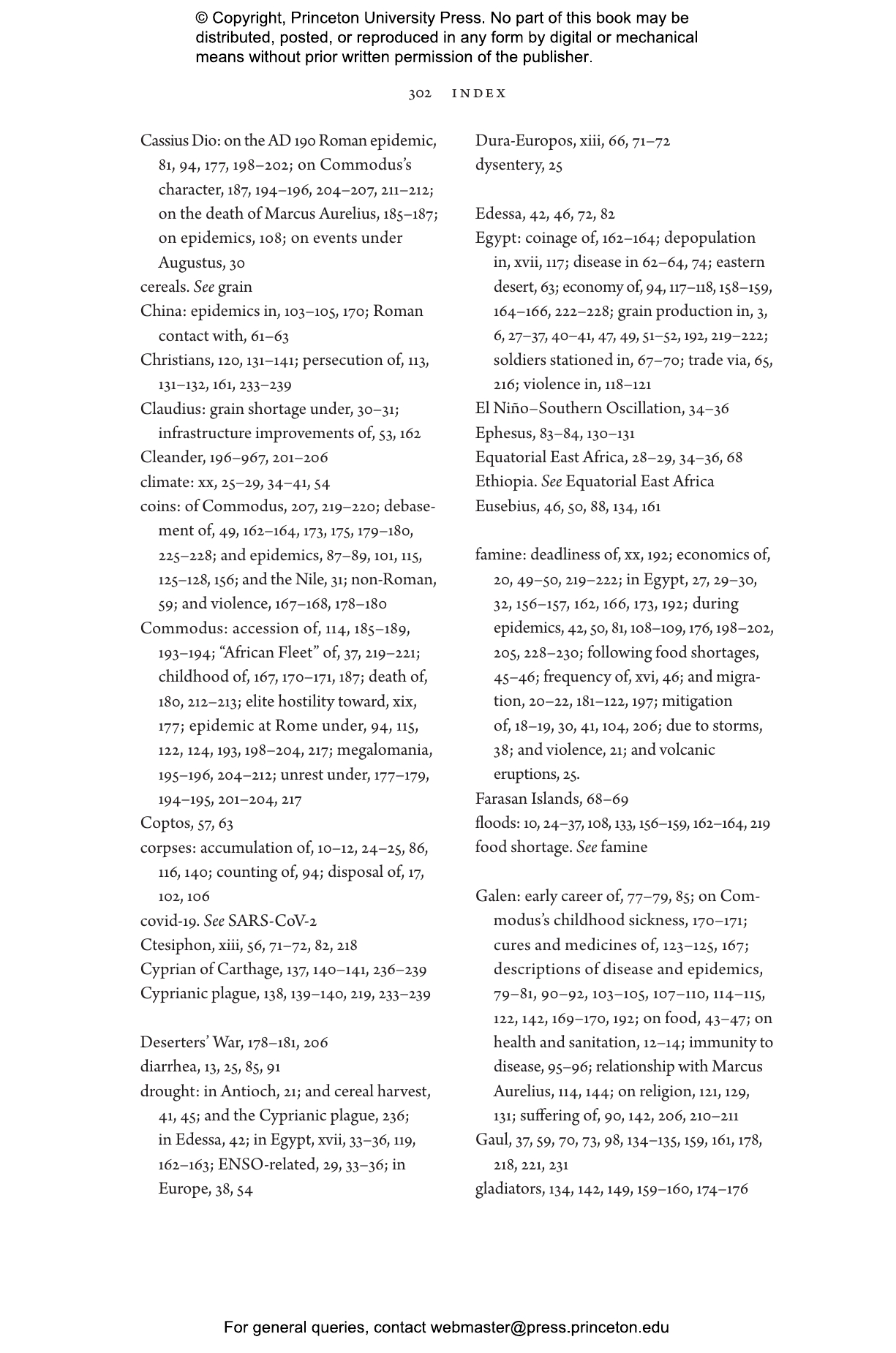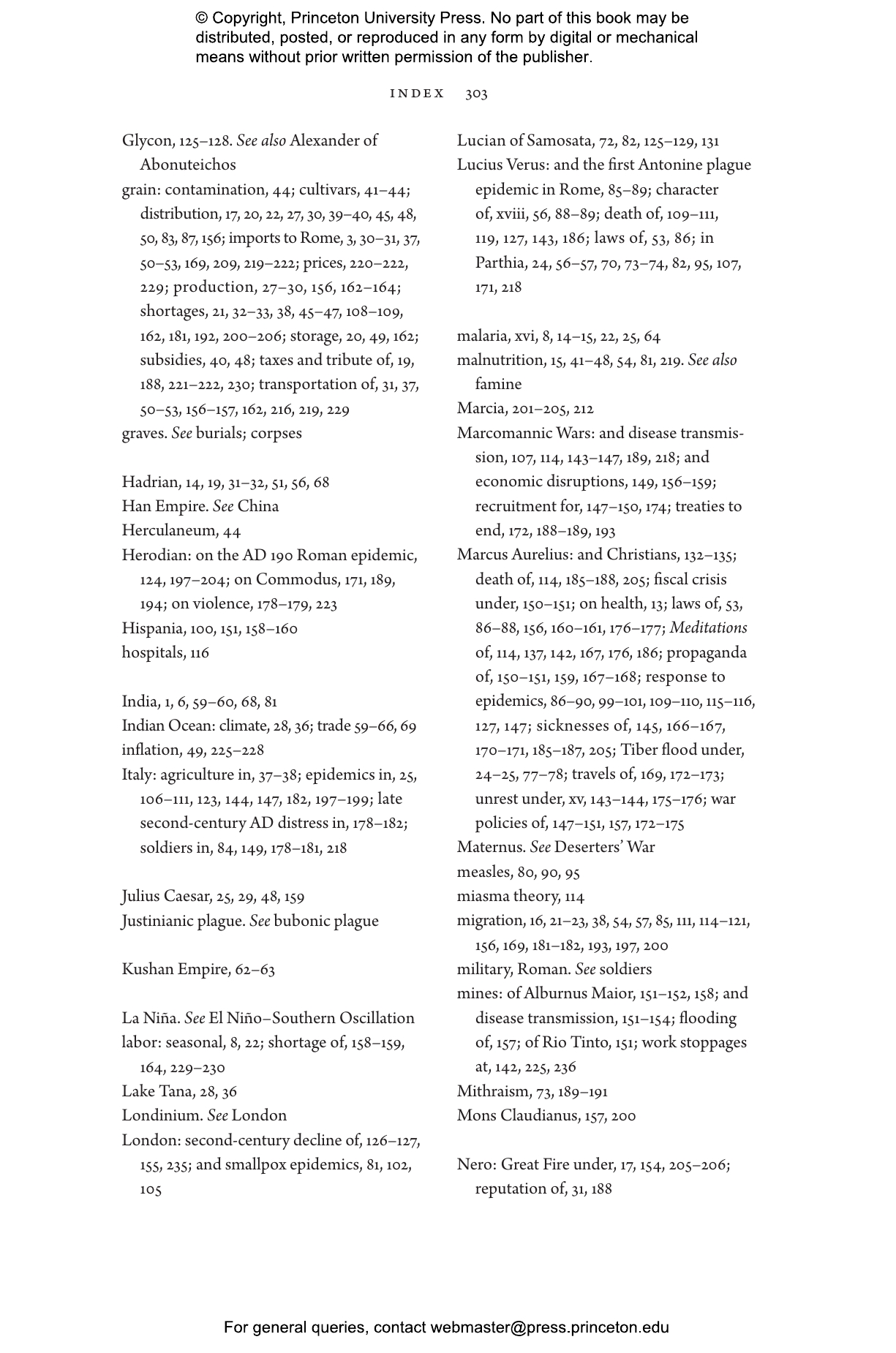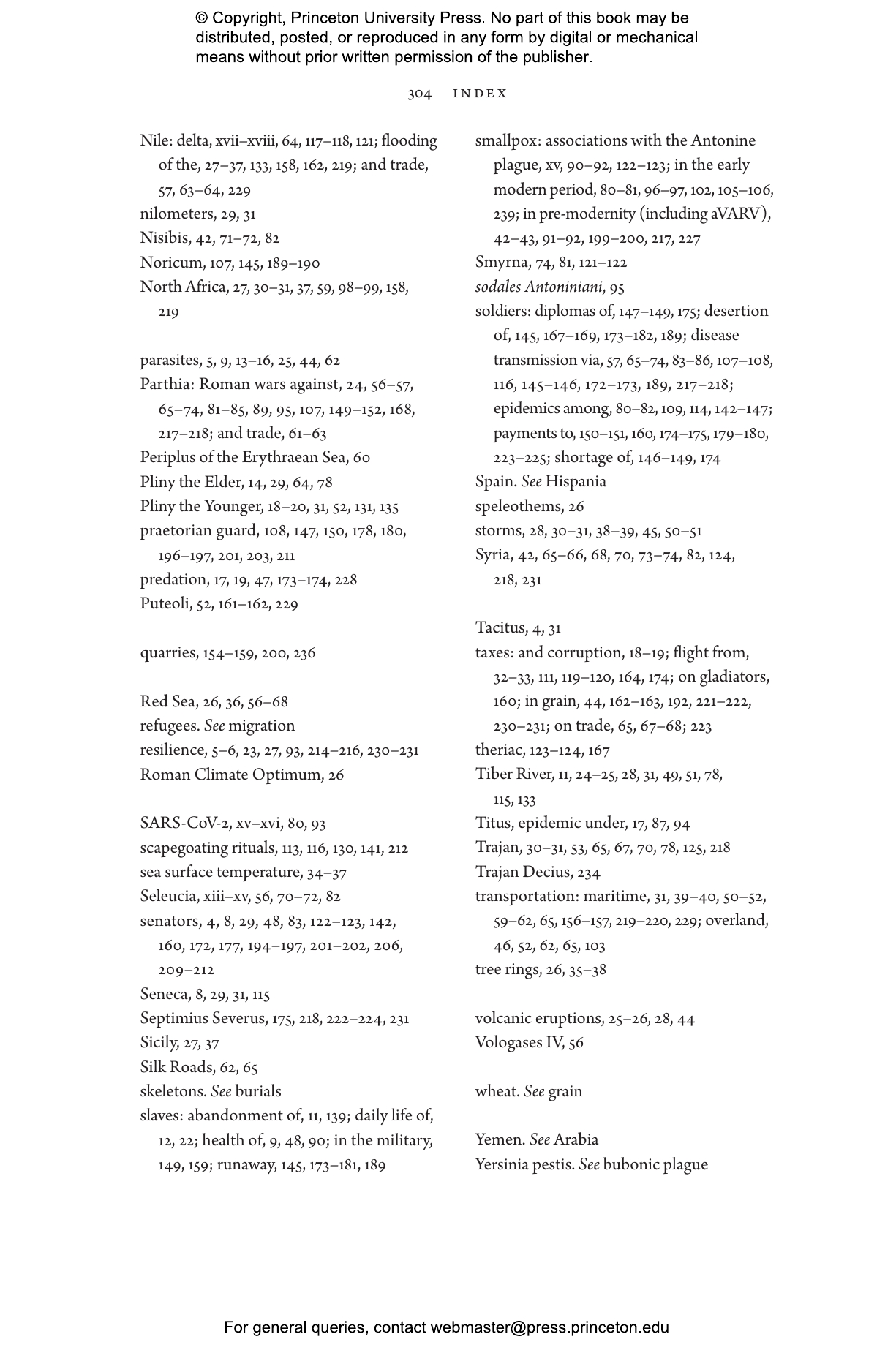In the middle of the second century AD, Rome was at its prosperous and powerful apex. The emperor Marcus Aurelius reigned over a vast territory that stretched from Britain to Egypt. The Roman-made peace, or Pax Romana, seemed to be permanent. Then, apparently out of nowhere, a sudden sickness struck the legions and laid waste to cities, including Rome itself. This fast-spreading disease, now known as the Antonine plague, may have been history’s first pandemic. Soon after its arrival, the Empire began its downward trajectory toward decline and fall. In Pox Romana, historian Colin Elliott offers a comprehensive, wide-ranging account of this pivotal moment in Roman history.
Did a single disease—its origins and diagnosis still a mystery—bring Rome to its knees? Carefully examining all the available evidence, Elliott shows that Rome’s problems were more insidious. Years before the pandemic, the thin veneer of Roman peace and prosperity had begun to crack: the economy was sluggish, the military found itself bogged down in the Balkans and the Middle East, food insecurity led to riots and mass migration, and persecution of Christians intensified. The pandemic exposed the crumbling foundations of a doomed Empire. Arguing that the disease was both cause and effect of Rome’s fall, Elliott describes the plague’s “preexisting conditions” (Rome’s multiple economic, social, and environmental susceptibilities); recounts the history of the outbreak itself through the experiences of physician, victim, and political operator; and explores postpandemic crises. The pandemic’s most transformative power, Elliott suggests, may have been its lingering presence as a threat both real and perceived.
"Enlightening. . . . [Elliott] expertly draws on trace evidence such as census records, real estate contracts, and paleoclimate research to make his case. It’s an informative history that serves to encourage better pandemic preparedness today."—Publishers Weekly
"This look at the Antonine plague and its impact has both good history and good economics."—Tyler Cowen, Marginal Revolution
"Pox Romana is an important work of ancient history. . . . It shows that by leveraging new archeological evidence, and variegated forms of quantitative evidence, scholars are making substantive advances in our understanding of the Roman world."—Mark Koyama, How the World Became Rich
"Colin Elliott has written a book which is very relevant to the world we live in."—Francis Ghilès, The Arab Weekly
"Colin Elliott offers a comprehensive, wide-ranging account of [a] pivotal moment in Roman history. . . .I recommend everyone to purchase this book."—Mark Beumer, Kleio-Historia
"[A] remarkable book. . . .A vivid account of the harsh realities of life in an ancient mega city like Rome."—The Tablet
"A particular highlight of Colin Elliott’s book Pox Romana: The Plague That Shook The Roman World is his visceral account of ancient Rome itself. . . .Wryly humorous. . . .[Elliott] vividly describes a tottering though resilient empire."—Talha Burki, The Lancet
"[Pox Romana] paints a vivid picture of the impact of the world’s first pandemic in recorded history. . . .A great read."—Tibi Puiu, ZME Science
"Readers will find in this remarkable book an important contribution to Roman imperial history and a vivid account of the harsh realities of life in an ancient mega city like Rome. . . . Highly recommended."—Choice Reviews
"A lively account of what many think was the world’s first pandemic. . . . A stimulating reflection on how pandemics involve a complex interplay of pathogen, environment, state intervention and private action."—Myles Lavan, Times Literary Supplement
"Lively."—Josephine Quinn, London Review of Books
"���ܱ�����."—Pharmacy Magazine
"A multifaceted portrait of the Antonine plague. . . . Elliott handles an admirable breadth of evidence, ambitiously drawing from texts, inscriptions, numismatics, archaeological material, pathogen paleogenomes, and paleoclimate archives."—Rachel Singer, H-Net Reviews
"[A] careful collection of examples, micro-histories, and sets of evidence that the author takes onto the scene while discussing some of the darkest pages of Roman history."—Rocco Palermo, Bryn Mawr Classical Review
“Colin Elliott’s Pox Romana is now our most thorough study of the transformational Antonine plague. In a lucidly written exploration of this seminal event, Elliott not only presents a compelling interpretation, but in the process offers a portrait of the Roman world amidst a sudden, a wrenching episode of pandemic disease.”—Kyle Harper, author of Plagues upon the Earth: Disease and the Course of Human History
“When a perfect storm of plague, climate crises, and war hit the Roman Empire, its proverbial grandeur turned out to be only skin-deep. A gripping detective story, Colin Elliott’s brilliant reconstruction of the causes and consequences of the world’s first true pandemic is a landmark achievement—and a warning for the present.”—Walter Scheidel, author of Escape from Rome: The Failure of Empire and the Road to Prosperity
“By combining traditional historical research techniques with cutting-edge interdisciplinary scholarship, Elliott expertly assembles dispersed fragments of evidence to unravel the puzzle of one of history’s first pandemics. Pox Romana presents an engaging and provocative argument regarding the Antonine plague’s role in shaping the fate of ancient Rome and demonstrates the Roman Empire’s fragility to pandemic disease.”—Paul Erdkamp, Vrije Universiteit Brussels
